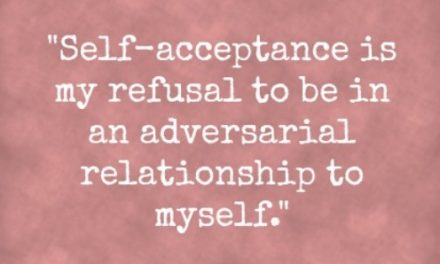Chances are, you have people in your life whose behavior you wish would change. Your romantic partner might be putting on a little weight. Your parents may complain too much. Your best friend won’t look for a new job, even though she hates the job she has now.
Once you notice these annoyances, it is natural to want to push people to change. Is it actually possible to change someone else’s behavior? Should you even try?
It turns out that you can help people to change their behavior, but there is a limited amount you can do without their help.
For example, if you’ve been working hard to lose weight and adopt a healthy lifestyle, you probably know how difficult that can be, and how important it is to have the support and help of others who are doing the same thing. You’ve probably been inspired by someone else’s success, gotten some important advice, or found a sympathetic listener just at the precise moment when, otherwise, you might have given up. Maybe that happens for you nearly every day.
When important people in your life are also struggling with weight problems or making healthy decisions, you probably want to give them the same help and support you’ve received from others. Easy enough —as long as they’re looking for what you have to offer.
But what do you do when someone you care about doesn’t seem to want to change her lifestyle? What if she really wants the results of eating well and exercising regularly, but isn’t so keen on doing the things that make those results happen? How can you motivate someone to do what you know she needs to do—is that even possible?
What You Can’t Do
Conventional wisdom says that you can’t motivate someone else. Maybe you can, however, inspire her with your own good example, give her the information she needs to solve problems, or support her when the going gets tough. But like the proverbial light bulb, that person is not going to change her behavior unless and until she wants to change it, and is ready and willing to do what has to be done. The desire and readiness have to come from inside.
This conventional wisdom is probably true, but all it really tells you is what you can’t do to motivate someone else. You can’t provide her with a good reason to get healthy, you can’t persuade her to do it by the sheer brilliance of your logic and persuasive techniques, and you can’t convince her by the persistence of your nagging, suggestions, bribes, threats, predictions of disaster, or other manipulative devices. Until the object of your concern wants to do something about her situation, anything you tell her is going to fall on deaf ears.
So, if you’re currently doing any of those things I just mentioned, knock if off before it messes up your relationship and drives both you and the person you’re concerned about crazy with frustration and resentment.

When you think about it, this makes perfect sense. How many people do you know who really want to be unhealthy and overweight, and wouldn’t prefer to look better, feel better, and be as healthy as possible? When someone “isn’t motivated” to lose weight or live a healthy lifestyle, the problem is probably not that she isn’t ready or willing to enjoy the obvious benefits of healthy eating and exercise. If things were as simple as that, she’d make those changes in a minute.
More likely, the problem is that, to her, she’s “benefiting” (in some way) from the way she’s doing things now, and she isn’t sure she’ll still get those same benefits if she makes big changes in her life. Your best chance for motivating her to make desirable changes is to find out what she’s getting out of her “unhealthy” behaviors now, and what you can do to help her get those same things without paying the price of obesity, inactivity, and higher health risks.
Let’s take a look at what this means in practical terms.
What You Can Do
- Do more listening than talking. Remember, your job is not to persuade, correct, or preach. Most people who are “stuck” in unhealthy behaviors already know what’s wrong and what they need to change. What they don’t know, they can easily find out when they’re ready to use the information. Most people even know, more or less, when they’re denying the obvious, inventing rationalizations, coming up with excuses, only seeing the problems, and ignoring the opportunities. But arguing with a friend or loved one about these things just makes it that much harder for her to start talking about the real issues. In fact, people are far more likely to talk themselves out of these unhelpful thoughts than to be talked out of them by someone else. Your job is to listen, nod a lot, and say things like “Yes, that was a problem for me, too,” or, “You mean you do that too? I thought I was the only one.”
- Lead by example. The best reason you can give someone for adopting a healthy lifestyle is doing it yourself and letting her see how it has helped you. Another dimension of this leading by example is talking about what you’ve learned about yourself in the process and the benefits that may not be visible on the surface. As I mentioned earlier, the “real” reason people hold back from change is usually fear of losing something important or exposing themselves to danger. That something important can be anything from the simple pleasure of doing something they enjoy (like eating a bag of chips while sitting on the couch and watching TV) to some deep psychological need to stay overweight and avoid the risks of being socially active. She might be unwilling to give up a certain style of cooking (comfort food for example) because it provides an important feeling of emotional connection with her family.
Whatever the reasons are, change isn’t likely to happen until she feels like she’s got some other realistic options for meeting these needs and desires. And most of us don’t like to think or talk too much about this kind of stuff (even to ourselves, much less someone else). You might be able to help move this part of the change process along by talking (when the opportunity arises) about how you’ve dealt with some of these kinds of things yourself.
The ideal solution to these difficulties is to make doing the right thing as fun and pleasurable as possible. That will always work better than preaching the evils of instant gratification, glorifying the virtues of delayed gratification or heroic self-discipline, and striking fear into the hearts of potential junk food eaters.

The best way to help other people change is to learn about how to change your own behavior. The more you know about the factors that drive your own behavior, the better you can use the same principles to help other people change.
For example, human beings are a remarkably social species. We are wired to adopt the goals of the people around us. That means that there is something deeply right in Mahatma Gandhi’s exhortation to be the change you want to see in the world. (The original quote was, “If we could change ourselves, the tendencies in the world would also change.” Truly fitting.) When you act in the way you want others to behave, you are helping the people around you to unconsciously adopt the goals you are pursuing.
People are also strongly driven by their environment. We generally do things that are easy to achieve and avoid things that are hard. That means that you can help people to change by removing temptations from their environment and replacing those temptations with items that promote desired goals. Many cities have taken this proposal to heart and have instituted bike-sharing programs that make it easy for people to leave their cars behind and to pedal from once place to another.
Unfortunately, there are limits to what you can change about another person without their cooperation. Unless someone is willing to really commit to a new goal and make plans that will help them achieve that goal and turn it into a habit, that individual is unlikely to make lasting changes in her life.

And that leads to the question of whether you should try to affect other people’s behavior.
The answer there is more complicated.
I am a big fan of communication. If you think that it is important for someone in your life to make a change, then talk about it. Do not try lots of indirect ways to get them to change. Most people quickly become aware of your attempts to influence what they do (and may reject or resent them). So, don’t assume you are being clever by hiding the Ben & Jerry’s or suggesting lots of early morning walks on the jogging path.
It is fine to let the people in your life know that you care about them and stand at the ready to help them in any way you can. After that, though, you have to give them some space to decide whether they want to change.
And while you’re at it, take some time to look at your own life. The sad fact is that it is often easier to try to fix other people’s problems than it is to fix your own. So, as you start to learn about principles for making changes, practice by applying them on yourself.
With love from the Trench kitchen,
xoxoErika♥










